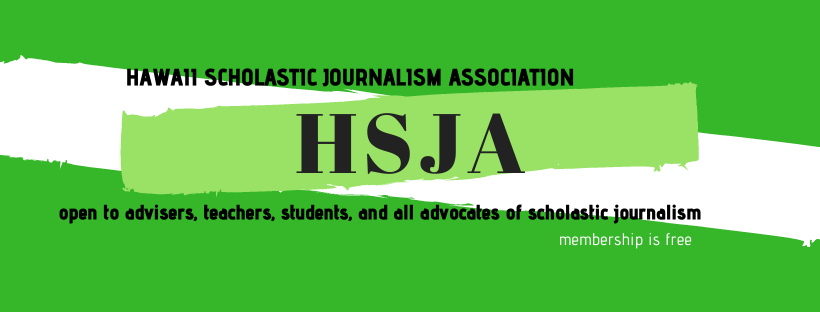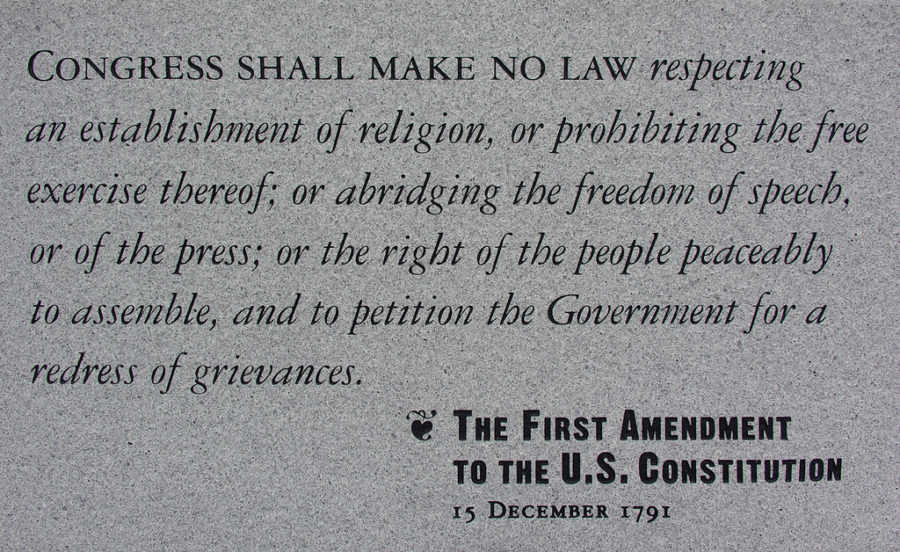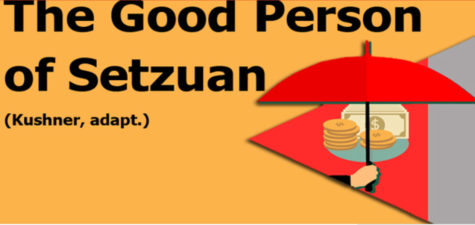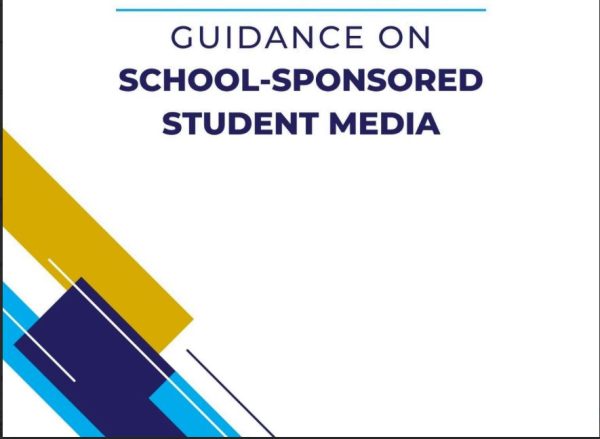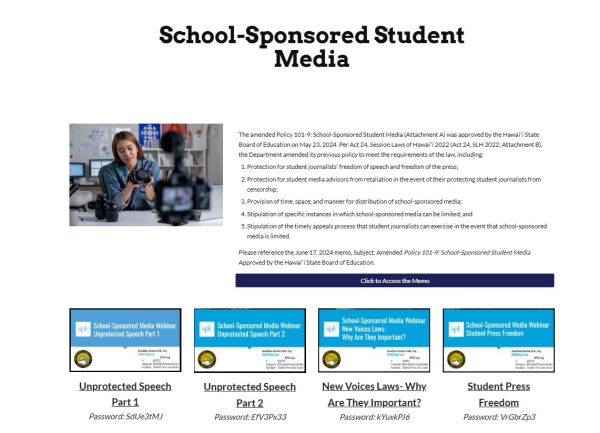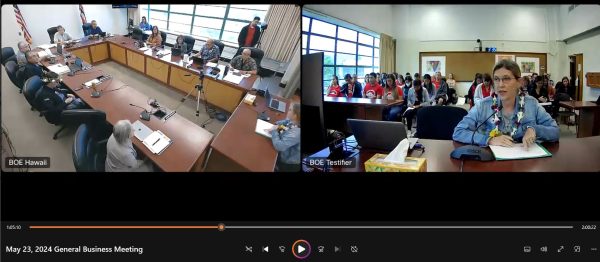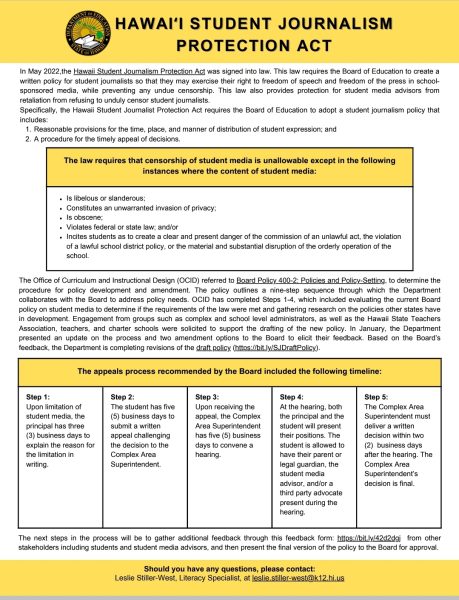New Voices with New Stories
Protecting the message and the messenger in school-sponsored student publications.
When she was still in high school, Chavonnie Ramos struggled with writing relatable and enticing stories for her school’s newspaper because administrators kept a tight grasp on the type of content students could publish. Discouragement from her superiors ultimately resulted in the publication of “safe” articles that resembled advertisements more than hard-hitting news. As the Ka Leo Sports Editor, Ramos reflected on the freedom she now has working for an independent publication– the kind of freedom she did not have in high school.
The Hawaii Scholastic Journalism Association (HSJA) put out a press release regarding school-sponsored student publications at the 2018 University of Hawaii Manoa Journalism Day. The HSJA is fighting to change a policy that affects student journalists concerning the censorship of their media, in favor of free and inclusive expression. Advocates for the revision argue that Policy 101-9, which currently states, “staff of school-sponsored student publications have the authority to determine the content of their publications subject to the limitations of this policy, other Board policies and state and federal law,” prevents the discussion of controversial topics in public schools.
James Campbell High School Principal Jon Henry Lee does not enforce a strict censorship policy regarding any of the school’s various student media.
“I believe in our teacher and I believe in our students. They have done a wonderful job and have held themselves to a high standard so there hasn’t been a need for administrative review before publishing,” said Lee.
He said he believes when you have dedicated people who are passionate about what they do, it’s wise to give them support and get out of their way.
The same mindset, however, is not shared by all administrators across the state or even across the nation. The New Voices movement is gaining momentum through national campaigns for new legislation for high school students and teachers to protect them against censorship. Student testimony shows that topics relevant to today’s generation such as sexual assault, LGBTQ rights, and exposés on school happenings are commonly considered taboo, and schools can prevent work from being published under the current policy.
Yet these are the issues that attract readers to student publications.
“By getting topics that are relatable to your school and your community, they’re more likely to say something,” said Ramos, who shared her testimony about censorship with current high school journalists during a press conference.
She experienced the full effects of Policy 101-9 in high school in the form of missed deadlines and suppressed content. An article highlighting the poor bathroom facilities at her high school was enough of a controversy to spark conflict between newspaper staff and administrators over the reputation of the school, thus preventing the story from being published.
Kailanianna Ablog, Ka Leo Opinions Editor, had a similar experience at her Catholic, all girls, private school that is not required to adhere to the regulations of the Hawaii Department of Education (HIDOE).
“There were a few articles that I did not want to pitch only because I knew right away the adviser, or perhaps other teachers, and the headmaster of the school would not approve,” said Ablog. “We do have to uphold a specific image for the school and even though censorship is not good, I can understand the reasons behind it.”
President of the Hawaii Publishers Association and HSJA member, Jay Hartwell, explained how public school students can take action to enact a policy change. He recommends submitting testimonies showcasing how administrative control over content prohibits learning to the HIDOE and advocating for change in the form of editorials and news stories.
To many like Hartwell, the New Voices movement is an important one in our schools.
“You’re there to be learning how to think, and ideally to think critically, and to take risks in your development,” said Hartwell. “If a principal is inhibiting that from happening, then what kind of citizens are we creating?”

